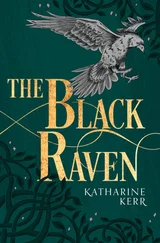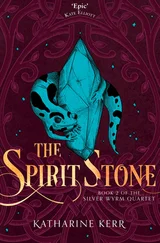She hadn’t wanted to lie to Max, but what other choice did she have? He couldn’t ever know who had actually broken her heart last year. If he knew the truth, Max wouldn’t want her anymore.
It didn’t matter that she and Atlas were long since over. If anyone found out the truth about them, Avery knew, her life would come crashing down around her.
CALLIOPE HATED HER bedroom at Nadav’s apartment.
It used to be the formal guest room and still contained the same set of heavy furniture, with clawed feet and angry-looking eagle heads carved into each drawer. The heavy velvet drapes seemed to crush the very air from the room. On the wall facing the bed hung an antique image of dogs killing a deer. Calliope thought it was morbid, but Nadav had won it in an auction and was terribly proud of it. She’d gotten in the habit of throwing a sweater over the painting before she went to bed, so the deer’s mournful eyes wouldn’t haunt her in her sleep.
When Calliope first moved in, she’d instantly begun planning how she would redo the room. She would buy light, airy furniture and colorful pillows and paint the wall with pigmaspectrum paint, in the bold primary palette. But when she mentioned her intention one night at dinner, Nadav had been so shocked that he let his fork clatter loudly to his plate.
“That paint is intended for toddlers’ rooms,” he pointed out, clearly affronted by her suggestion.
Calliope didn’t care that the paint was made for children. She loved the way it subtly shifted colors throughout the day, from a deep angry red all the way to purple and back again. “If you hate it, I can pick something else,” she’d offered as Elise met her gaze meaningfully across the table.
Nadav shook his head. “I’m sorry, Calliope, but you can’t redecorate. We need that room as a guest room for when my mom comes to stay.”
Why couldn’t she change her room just because Nadav’s mom would eventually be sleeping there? “When your mom is staying in my room, where will I—”
“You’ll share Livya’s room, of course.”
The only person who’d seemed unhappier about that than Calliope was Livya, whose lips pursed into a thin, pale line.
Calliope had grown used to a long litany of no’s from Nadav. When she signed up for the school play: No, you should try student government instead . When she wanted to go to a party: No, you have to be home by curfew . When she wanted to get a puppy: No, puppies are a frivolous distraction — at your age, you need to be focused on your studies. As the months went by, Nadav had eventually started to say no before she’d finished voicing her question.
She told herself that it was fine, that she didn’t really care about that stuff anyway. Except maybe for the puppy. At least that would have made her feel less lonely.
Standing now in her bedroom, Calliope let out a petulant sigh. This room might as well have belonged to a stranger. Even after eight months, there was something decidedly temporary about it all, as if Calliope were only camping out here: boxes and suitcases stacked haphazardly in the closet like the belongings of a criminal who might have to run from the law at any moment.
She stepped toward the closet and pushed past the rows of hangers, covered in demure silk dresses and high-waisted slacks. Even the clothes didn’t feel like hers; before they moved in, her mom had sorted through Calliope’s wardrobe with ruthless abandon, tossing out anything tight or revealing or remotely sexy. Thank god that Calliope had secretly managed to salvage a few pieces before that bonfire of the vanities.
She stretched toward the edge of the wall, past an enormous wool coat, until her fingers brushed the bag she was looking for. Quickly she began sifting through it, pulling out an electric bracelet, a pair of gaudy clip-on earrings, her favorite red lip gloss: things she hadn’t worn in months. When she was finally ready, Calliope lifted her eyes to the only thing in the room she did like—the mirror-screen that took up an entire wall.
She kept the room bulbs on their maximum setting and gave a self-satisfied smirk. Her beauty was as vivid, and almost as harsh, as the overbright lighting.
“Here goes nothing,” she said to herself, and was down the hallway without a backward glance.
Calliope felt a little shiver of adventure as she slipped out of Nadav’s apartment. Because she wasn’t just sneaking out of the house. She was sneaking out of her life , shedding her skin, sliding neatly from the role of Calliope Brown into another role. One that she was making up as she went along.
She knew this was risky. But Calliope had hit breaking point. She couldn’t take another night in that cold, gilded apartment, with its thick carpets and ticking clocks. It was the sort of apartment where she knew exactly what was happening at any given moment, because it all ran with such monotonous efficiency. Even now, for instance, Nadav would be sitting at his modular recycled-aluminum desk to review some contract or message before going to sleep. Livya would be tucked safely into her four-poster princess bed, her room comp whispering SAT questions to her throughout the night for some osmosal learning. It was all so terrifyingly predictable.
As she stepped onto the downTower lift, filled with clamor and conversation—all the messy chaos of real life—Calliope felt an overwhelming sense of relief. New York was still here. It hadn’t gone anywhere.
She switched to the monorail at Grand Central, heading out of the Tower altogether, toward the lower Manhattan neighborhood known as the Sprawl. It was as unlike the sleek, ordered reality of the Tower as night from day; parts of it were still radically low-tech, with warped wooden floors and twisted railings. Church steeples rose into the sky alongside bright holograms.
Calliope glanced back at the Tower as she stepped off the monorail. From this angle it seemed to burn more brightly than ever. Next to it, the half-moon looked alone in its isolated glory.
She paused at the corner of Elizabeth and Prince Street, her eyes closed with deceptive nonchalance. It was almost nine on a weeknight and the streets were mostly quiet. But Calliope could feel the Sprawl’s thrum of excitement—the seething, excited pulse of things young and thrilling and illegal.
She pushed open an unmarked brown door and stepped inside.
A wall of sound roared up to meet her: crowds erupting in screams, the slippery beat of electronic music. Another turn down the stairs and Calliope emerged in a bar, all done up in neons and pulsing LED lights, like some kind of video-game speakeasy. The ceiling was lined in prisms of glass that reflected the garish illumination, separating it into a million glowing strands and tossing it down again. The colors were so vibrant that it almost hurt to look at them.
Calliope didn’t bother getting a drink, though she could have; she was over eighteen. She just lingered in the corner, her eyes flicking expertly around the room. It was crowded, with a mix of nerds, tourists, and others who were simply curious. The afternoon show was meant for children, she knew; but the night performance was supposedly much edgier—and more violent.
Someone sounded a gong. The crowd obediently shuffled through the bar to the stadium beyond, clutching their drinks to their chests. Calliope let herself be caught along in the surge, her hair falling loose around her bare shoulders. She was wearing a strapless silver dress and boots, and had even sprayed a temporary inktat patch on her tanned cheek, just for fun. It would leave a sticky film over her face for several days, but the effect was worth it.
The stadium smelled like popcorn and grease. Calliope sank eagerly into her seat and leaned forward, elbows on her knees, to study the ComBots—Combat Robots—waiting around the room. A team of handlers huddled near each of them, clutching tablets as they engaged in last-minute system checks. Calliope caught a surreptitious movement in the corner of her eye and smiled. Probably bookies, recording under-the-table bets. ComBattles might not be illegal, but gambling on them assuredly was.
Читать дальше












